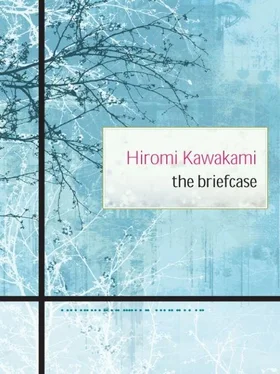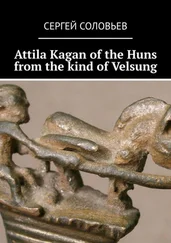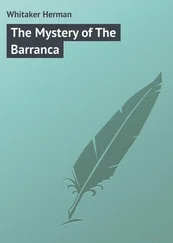Sensei paid for our admission. When I tried to hand him money, he shook his head. No, please, I invited you, he said, refusing to take it.
We entered the art museum together. It was surprisingly crowded inside. I was amazed that so many people could be interested in completely indecipherable calligraphy from the Heian and Kamakura eras. Sensei stared through the glass at the rolled letter papers and hanging scrolls. I watched Sensei’s back.
“Tsukiko, isn’t this simply lovely?” Sensei was pointing at what appeared to be a letter with fluttery script written in pale ink. I couldn’t make out a word.
“Sensei, can you read this?”
“Ah, actually, I can’t really,” Sensei said with a laugh. “But still, it really is a nice hand.”
Do you think so?
“Tsukiko, when you see a handsome man, even if you cannot understand what he says, you still think, ‘Oh, that guy’s good-looking,’ don’t you? Handwriting is the same.”
I see, I nodded. Did that mean when Sensei saw an attractive woman, he thought, “Oh, what a pretty girl”?
After looking at the special exhibition on the second floor, we went back downstairs to view the permanent collection, and by then two hours had passed.
The calligraphy was utter gibberish to me, but I found myself enjoying the time as I listened to Sensei’s murmured bursts of “Such a nice hand” or “A bit prosaic” or “Now that’s what’s called a vigorous style.” The same way as when you’re sitting at a sidewalk café, furtively passing judgment on people as you watch them go by, it was amusing to attach my own to these works from the to attach my own impressions to these calligraphed works from the Heian or Kamakura eras: “That’s nice” or “This one’s not bad” or “It reminds me of a guy I used to go out with.”
Sensei and I sat down on a sofa on the staircase’s landing. Numerous people passed before us. Tsukiko, was that boring for you? Sensei asked.
No, it was rather interesting, I replied, staring at the backsides of the people passing by. I could feel the warmth radiating from Sensei’s body. The stirring of emotion returned. The hard sofa with bad springs felt like the most comfortable thing in the world. I was happy to be here like this with Sensei. I was simply happy.
“TSUKIKO, IS SOMETHING wrong?” Sensei asked, peering at my face.
Walking alongside Sensei, I had been muttering to myself, “Hopes strictly forbidden, hopes strictly forbidden.” I was mimicking the main character in the book The Flying Classroom , which I read when I was little, who says, “Crying strictly forbidden, crying strictly forbidden.”
This may have been the closest I had ever walked beside Sensei. Usually Sensei stood in front of me, or I darted out quickly—one or the other.
If someone were walking toward us, we would each break off to the left or to the right to make room for the person to pass. Once they had gone by, we would resume walking closely side by side.
“Don’t go to the other side, Tsukiko, come my way,” Sensei said after the umpteenth person headed toward us. But I still broke off from Sensei and went “to the other side.” For some reason, I just wouldn’t huddle over with Sensei.
“Stop swinging around like a pendulum.” Sensei suddenly grabbed my arm as I started for “the other side.” He tugged firmly. It wasn’t that he used that much force, but since I had been moving away from him, it felt like I was being tugged.
“Let’s walk alongside each other,” Sensei said, still holding my arm.
Yes, I replied, looking downward. I was about a thousand times more nervous than the first time I had gone on a date with a boy. We kept walking along, Sensei still holding my arm. The trees lining the street were just barely starting to show their autumn colors. It looks like he’s bringing me in for questioning , I thought as I walked beside Sensei.
The art museum was located within a big park. To the left, there was another museum and to the right was a zoo. The late afternoon sunlight shone on Sensei’s torso. A child was scattering popcorn on the path. The moment he dropped the pieces, dozens of pigeons would flock over. The child let out cries of wonder. The pigeons flew around him, even trying to peck at the popcorn that was still in his palm. The boy stood motionless, half crying.
“They’re rather aggressive pigeons, aren’t they?” Sensei said serenely. Shall we have a seat here? he asked as he sat on a bench. I sat down a moment after Sensei did. Now the afternoon sun’s rays fell across my torso as well.
“I bet that boy is about to start wailing,” Sensei said, leaning forward with great interest.
“I don’t think so.”
“No, lots of little boys are crybabies.”
“It’s not the other way around?”
“No, little boys are much wimpier than little girls.”
“Sensei, were you a wimp when you were little?”
“I’m still very much a wimp, even now.”
Sure enough, the little boy burst into tears. One of the pigeons had gone so far as to rest on top of his head. A woman who must have been his mother laughed as she came to pick him up.
“Tsukiko,” Sensei said, turning toward me. Now that he was facing me, however, I became incapable of facing him.
“Tsukiko, thank you for coming with me to the island that time.”
I muttered in reply. I hadn’t really wanted to think about what happened on the island. Ever since then the phrase “Hopes strictly forbidden, hopes strictly forbidden,” had been echoing in my mind.
“I’ve always been, well, a shilly-shallier.”
“A shilly-shallier?”
“Isn’t that what they used to call a kid who’s slow to respond or do something?”
But Sensei didn’t seem like the kind of person who shilly-shallied. I always thought of him as briskly decisive, standing up straight.
“No, in this way I am really something of a shilly-shallier.”
The boy who had been swarmed by the pigeons, now that he was in his mother’s arms, started scattering popcorn again.
“The child didn’t learn his lesson, did he?”
“Children never do.”
“That’s right, and I guess I’m no different.”
He shilly-shallies and he never learns. Just what was Sensei trying to say? I stole a glance at him—he was sitting up perfectly straight, as always, watching the little boy.
“When we were on the island, I was still shilly-shallying.”
The pigeons were swarming the boy again. His mother scolded him. The pigeons were trying to alight on her too. Still holding the boy, she tried to extricate herself from the flock of birds. But since the boy wouldn’t stop strewing the popcorn, the pigeons just kept following the mother and child. It looked as though they were trailing a huge moving carpet made of pigeons.
“Tsukiko, how much longer do you think I’ll live?” Sensei asked abruptly.
I met Sensei’s gaze. His eyes were placid.
“A very, very long time,” I cried out reflexively. The young couple sitting on the next bench turned around in surprise. Several pigeons took flight.
“You know that’s not the case.”
“But, still, a long time.”
Sensei took my left hand in his right hand, his dry palm enveloping mine.
“And would you not be satisfied, if it weren’t a long time?”
What? My mouth was half-open. Sensei had called himself a shilly-shallier, but I was the one who hesitated now. Even in the midst of this conversation, I sat there pathetic and slack-jawed.
The mother and child had disappeared without my noticing. The sun was starting to set, and the first signs of dusk were creeping up around us.
“Tsukiko!” Sensei said, sticking the tip of his left index finger into my open mouth. Astonished, my automatic reaction was to close my mouth. Sensei nimbly pulled his finger back out before it was caught by my teeth.
Читать дальше

![Хироми Каваками - Strange Weather in Tokyo [= The Briefcase]](/books/29150/hiromi-kavakami-strange-weather-in-tokyo-the-br-thumb.webp)










